Fruits Name, Meaning & Image | Fruits Vocabulary | Necessary Vocabulary
Fruits
Fruit / fruːt / (ফ্রূট্) n [a fruit is a part of a flowering plant that derives from specific tissues of the flower. That consists of one or more seeds/pip and flesh with skin, that are sweet or sour and edible in the raw or ripe state, such as mango; tamarind; Malta, etc.] (ফল): I like indigenous fruit such as plum; pomelo; hog plum, etc. than exotic. The guava tree in our house is in fruit. She runs a fruit shop in the marketplace. Finish the meal with fresh fruit, it is good for your health. He was now reaping the fruits of all his hard work.
Ø Derive / dɪˈraɪv / (ডিˈরাইভ্) v
Fruit Related Necessary Vocabulary Note
Ø Derive / dɪˈraɪv / (ডিˈরাইভ্) v
<PHR- V> Derive from Sth [= to come or develop Sth] (উৎপন্ন/ উদ্ভুত হওয়া): The word ‘politics’ is derived from a Greek word meaning ‘city’.
Ø Consist / kənˈsɪst / (কএন ˈছিস্ট্) v
<PHR- V> Consist of Sb/Sth [=to be formed from the things] (গঠিত হওয়া): The team consists of four Europeans and three Asian.
Ø Seed / siːd / (ছীড্) n {UK pip} [a small round or oval hard part produced by a plant, from which a new plant can grow] (<ফলের>বিচি; আঁঠি; বীজ): The farmers grow these crops for seed.
Ø Flesh / fleʃ / (ফ্লেশ) n {SYN pulp} [the soft part of a fruit, vegetable, fish, and animal which is between the skin and bones/seeds] (ফল, সবজি বা প্রাণী দেহের মাংসল অংশ; কাঁচামাংস): The thorn went deep into the flesh of my hand. The flesh of the fruit is white.
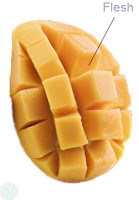 |
| Flesh |
Ø Skin / skɪn / (স্কিন্) n {Also peel} [the natural outer layer of tissue which covers an animal, fruit, vegetable, etc.] (<ফলের বা সব্জির>ছিলকা; গায়ের চামড়া ইত্যাদি):
<VERB> Skin / skɪn / (স্কিন্) v {Also peel} [to remove the skin of an animal, a fruit or a vegetable] (<ফল, প্রাণী ইত্যাদির ছিলকা>ছেলা): You will need four ripe mangoes, skinned and chopped.
Ø Sour / ˈsaʊər / (ˈছাওয়র) adj [having a sharp, sometimes unpleasant, taste or smell, like that of a lemon or of fruit that is not ready to eat] (টক; টকে গেছে এমন): Sour mango. Sour milk
 |
| Sour |
Ø Edible / ˈedəbl / (ˈএডএব্ল্) adj [fit or suitable to be eaten; not poisonous] (ভোজ্য; বিষমুক্ত): The food at the hotel was barely edible.
Ø Raw / rɔː / (রও) adj [<of food> not cooked] (কাঁচা): These fish are often eaten raw.
<SYN> Green / griːn / (গ্রীন) adj [<of fruit>not yet ready to eat] (<ফল সম্বন্ধে> কাঁচা): green mango
Ø Ripe / raɪp / (রাইপ্) adj [<of fruits or crops> fully developed and ready to be eaten or collected] (পাকা): Pick the mangoes before they get too ripe. Those bananas are not ripe yet – they are still green.
<VERB> Ripen / raɪpən / (রাইপএন) v [to make Sth ripe] (পাকানো; পেকে যাওয়া): The summer sunshine ripened the jackfruits. These mangoes are ripening nicely.
Ø Indigenous / ɪnˈdɪdʒənəs / (ইনˈডিজএনএছ্) adj [naturally existing in a place or country rather than arriving from another place] (দেশী; দেশজ): Indigenous fruits.
Ø Exotic / ɪgˈzɑːtɪk / (ইগˈজা্টিক) adj [from or in another country] (বিদেশী; বহিরাগত): I travel to all kinds of exotic locations all over the world.
Ø Reap / riːp / (রীপ্) v [to cut and collect a crop, especially from a field or garden] (<শস্য> কাটা; চয়ন /আহরণ করা): They are now reaping the fruits of all their hard work.
<SYN> Harvest
<NOUN> Reaper / ˈriːpər / (ˈরীপএর) n [a person or a machine that cuts and collects crops on a farm] ( ১। দাওয়াল ২। শস্য কর্তন যন্ত্র ):
<NOUN> Reaper / ˈriːpər / (ˈরীপএর) n [a person or a machine that cuts and collects crops on a farm] ( ১। দাওয়াল ২। শস্য কর্তন যন্ত্র ):
Mango
Mango / ˈmæŋgoʊ / (ˈম্যাঙ্গৌ) n [an oval tropical fruit with smooth yellow or red skin, soft and juicy orange-yellow flesh and a large hard seed in the middle] (আম): The delicious fruit mango is nutritionally superior, source, of several vitamins and minerals.
Ø Oval / ˈoʊvl / (ˈওউভ্ল) adj [shaped like an egg] (ডিম্বাকার; উপবৃত্তাকার): an oval mirror. An oval face. The leaves are long and almost oval.
Ø Tropical / ˈtrɑːpɪkl / (ˈট্রাঃপিক্ল্) adj [from or relating to the area between the two tropics] (গ্রীষ্মমণ্ডলীয়): The Amazon river basin contains the world’s largest tropical rainforest.
Ø Tropic / ˈtrɑːpɪk / (ˈট্রাঃপিক্) n [one of the two imaginary lines around the earth at approximately 23.5 degrees south of the equator] (বিষুবরেখার প্রায় ২৩.৫ ডিগ্রি উত্তরে এবং ২৩.৫ ডিগ্রি দক্ষিণে দুইটি কাল্পনিক রেখা; ক্রান্তিরেখা):
Ø Smooth / smuːð / (স্মূদ্) adj {<ANT> Rough} [completely flat and even, without any lumps, holes or rough areas] (মসৃণ): The road ahead was flat and smooth. This cream will help to keep your skin smooth.
Ø Delicious / dɪˈlɪʃəs / (ডিˈলিশএছ্) adj [having a very pleasant taste or smell] (সুস্বাদু; উপাদেয়): The delicious smell of freshly cooked meat is coming from the kitchen.
Ø Nutrition / nuˈtrɪʃn / (নিউˈট্রিশ্ন্) n [the process by which living things receive the food necessary for them to grow and be healthy] (পুষ্টি): Good nutrition diet is essential if patients are to make a quick recovery.
<ADV> Nutritionally / nuˈtrɪʃnlɪ / (নিউˈট্রিশ্ন্লি): A nutritionally balanced food
Ø Superior / suːˈpɪriər / (ছূˈপিরিএর) adj [better in quality than Sb/Sth else] (শ্রেষ্ঠ; উৎকৃষ্ট): She was chosen for the job because she was the superior candidate.
Lychee
Lychee / laɪˈtʃiː / (লাইˈচী) n {[USA] Litchi} [a Chinese fruit with rough reddish shell and white flesh around has a delicate, whitish pulp with a floral smell and a fragrant, sweet flavor and a large blackish seed inside] (লিচু): On average, consuming nine peeled Lychee would meet adult’s daily vitamin C requirement.
 |
| Shell |
Ø Shell / ʃel / (শেল) n [the hard outer covering part of something especially nuts, eggs and some animals] (<ডিম, বাদাম, কোনোকোনো বীজ ও ফল এবং কিছুকিছু প্রাণিদেহের> শক্ত বহিরাবরণ; খোসা): Brazil nuts have very hard shells.
Ø Delicate / ˈdelɪkət / (ˈডেলিকএট্) adj [<of colors, flavors and smells> light and pleasant; not strong] (কোমল; রুচিকর; সুস্বাদু; সুপাচ্য): Patients should be served delicate food.
Ø Pulp / pʌlp / (পাল্প) n [the soft part inside some fruit and vegetables] (ফলের ভেতরকার নরম শাঁস): Please scoop out the pulp of the melon and serve it with light salt.
<SYN> Flesh
Ø Floral / ˈflɔːrəl / (ˈফ্লোরএল) n [made of flowers or decorated with pictures of flowers] (পুষ্পময়; ফুলেল): floral curtains/print
Ø Fragrant / ˈfreɪgrənt / (ˈফ্রেইগ্রএন্ট্) adj [with or having a pleasant smell] (সুগন্ধ; সুরভী; সুগন্ধি; সুবাস): The sauce itself was light, fragrant and slightly sweet.
Ø Flavor / ˈfleɪvər / (ˈফ্লেইভ্এর্) n [how food or drink tastes or a particular taste itself] (<খাওয়ার সময়> স্বাদ্গন্ধ): The lemon juice gives extra flavor to the sauce.
Longan
Longan / ˈlɑːŋɡən
/ (ˈলাঃঙগএন্)
n [a tropical fruit which is similar to but
smaller than the litchi, with a brown shell and sweet, the white pulp a round, shiny, black single seed or the evergreen tree on which this fruit grows] (কাঠলিচু):
Rambutan
Rambutan / ræmˈbuːtən
/ (র্যাম্বূটএন্) n [a
tropical fruit with a red or yellow hairy shell and edible white flesh around a
white seed, that has a slightly acidic taste, native to SE Asia] (রামবুটান):
Papaya
Papaya / pəˈpaɪə / (পএˈপাইএ) n [a large, oval, tropical fruit with yellow and green skin, orange or red sweet flesh and small round black seeds] (পেঁপে): Papaya plants come in three sexes, male, female, and hermaphrodite. The male produces only pollen, never fruit. The female produces small, inedible fruits unless pollinated. The hermaphrodite can self-pollinate since its flowers contain both male stamens and female ovaries. Almost all commercial papaya contains only hermaphrodites.
Ø Sex / seks / (ছেক্ছ্) n [the state of being either male or female] (লিঙ্গ; স্ত্রী বা পুরুষ): What sex is your dog? Please indicate your sex and date of birth below.
<SYN> Gender
Ø Hermaphrodite / hɜːrˈmæfrədaɪt / (হা্রˈম্যাফ্রএডাইট্) n [a plant, person, animal or flower that has both male and female sexual organs or characteristics] (একাধারে স্ত্রী ও পুংলিঙ্গ কিংবা বৈশিষ্ট্য- সংবলিত প্রাণী, উভলিঙ্গ যেমন কেঁচো): Earthworm is a hermaphrodite animal.
Ø Produce / prəˈduːs / (প্রএˈডূছ্) v [to grow or make Sth as part of a natural process; to have a baby or young animal] (সৃষ্টি করা; জন্ম দেওয়া): My cat produced kittens last week.
Ø Pollen / ˈpɑːlən / (ˈপাঃলএন) n [fine power, usually yellow, that is formed in flowers and carried to other flowers of the same kind by the wind or by insects, to make those flowers produce seeds](পরাগ; পুষ্পরেণু):
<VERB> Pollinate / ˈpɑːləneɪt / (ˈপাঃলএনেইট) v [to put pollen into a flower or plant so that it produces] (পরাগ; পুষ্পরেণু): flowers pollinated by bees/ the wind.
Ø Stamen / ˈsteɪmən / (ˈস্টেইমএন) n [a small thin male part in the middle of a flower that produces pollen and is made up of a stalk supporting an anther](পুংকেশর): The center of each flower usually has several stamens.
Ø Ovary / ˈoʊvəri / (ˈওউভএরি) n {Plu. ovaries} [the part of any female animal or plant that produces eggs or seeds] (স্ত্রীজাতীয় প্রাণীদেহের ডিম্বকোষ বা ডিম্বাশয়; উদ্ভিদের বীজকোষ):
Plum
Plum / plʌm / (প্লাম্) n [a soft round fruit is usually of medium size, between 1 to 3 inches in diameter, globe to oval, with smooth green or purple skin, with a natural waxy surface that adheres to the flesh and a single large hard seed insight] (আলুচা): Mature plum may have a dusty-white coating that gives them a glucose appearance.
Ø Wax / wæks / (ওঅ্যাকছ) n [a solid substance that is made from beeswax or from various fats and oils and used for making candles polish, models, etc. It becomes soft when it is heated] (মোম বা মোমজাতিয় পদার্থ): wax polish.
<ADJ> Waxy / ˈwæksi / (ˈওঅ্যাকছি) adj [made of wax; looking or feeling like wax] (মোমের মতো): The cheese has a red wax rind.
Ø Adhere / ədˈhɪr / (এডˈহিয়ার) v [to stick firmly to Sth] (<দৃঢ়ভাবে> লেগে থাকা বা সেঁটে থাকা): Clean the surface first, or the paint will not adhere.
Jujube
Jujube / ˈdʒuːdʒuːb / (জূজূব্) n {also Chinese date} [a small round edible berrylike fruit of a Eurasian tree] (বড়ই)
Date
Date / deɪt / (ডেইট) n 1. [the fruit is known as a date with a sweet sticky brown flesh that grows on a tree, common in N Africa and W Asia] (খেজুর): Dates can be dehydrated, ground and mixed with grain to form a nutritious stock feed.
2. Date / deɪt / (ডেইট) n [a particular day of the month, sometimes in a particular year, given in numbers and words] (তারিখ): What’s the date today? /What date is it? / What’s today’s date?
 |
| 1. Stone |
Ø Stone / stoʊn / (স্টৌন্) n {US pit} 1. [a hard shell containing a large hard seed in the middle of some types of fruit] (কোনো কোনো ফলের শক্ত বিচি, যেমন লিচু, খেজুর, প্রভৃতি): Peaches, plums, dates, avocados, jackfruits, and olives all contain stones.
 |
| 2. Stone |
2. Stone / stoʊn / (স্টৌন্) n [the hard solid substance found in the ground which is often used for building, or a piece of this] (পাথর, প্রস্তর, শিলা): a primitive stone ax
Ø Dehydrate / diːˈhaɪdreɪt / (ডীˈহাইড্রেইট) v [to lose too much water from something] (জল শুন্য করা/ হওয়া): You will dehydrate very quickly in this heat if you do not drink lots of water.
Starfruit
Starfruit / ˈstɑːrfruːt / (ˈস্টাঃর ফ্রূট) n {Also carambola} [a yellowish tropical fruit with smooth peel and five-pointed, curved sections, making a star shape when cut through it, hence its name. The entire fruit is edible and is usually eaten out of hand. They may also be used in cooking and can be made into relishes, preserves, and juice drinks] (কামরাঙা): The flesh of star fruit is crunchy, firm, and extremely juicy.
Ø Section / ˈsekʃn / (ˈছেকশ্ন্) n [any of the parts into which Sth is divided] (অংশ; কোয়া; কোষ): the section of the orange
 |
| Section |
Ø <PHY-V> Cut through Sth [=to make a path or passage through Sth by cutting] (<কোনোকিছু> বরাবর কাটা): They used a machete to cut through the bush.
Ø Hence / hens / (হেনছ্) adv [for this reason] (এই ভাবে; এ কারণে): Her father is Italian, hence her name – Aster.
Ø Entire / ɪnˈtaɪər / (ইনˈটাইএর) adj [whole or complete, including everything, with nothing missing] (সম্পূর্ণ; পুরো; অখণ্ড): The entire area was hit by the cyclone.
<SYN> Whole
<ADV> Entirely / ɪnˈtaɪərli / (ইনˈটাইএরলী) adv [in every way possible; completely] (সম্পুর্ণরুপে; পুরাপুরি): I entirely agree with you. I admit it was entirely my fault.
Ø <PHR> Out of hand (=হাত থেকেই)
Ø Relish / ˈrelɪʃ / (ˈরেলিশ) v [to get great pleasure from Sth or to like or enjoy something] (উপভোগ করা; <কোনোকিছু> রুচিকর হওয়া): I always relish a challenge.
<SYN> Enjoy
<NOUN> Relish [=to get great pleasure from Sth] (রুচি): He is eating the cake slowly but with relish.
Ø Juice / dʒuːs / (জূছ্) n [the liquid that comes from fruit or vegetables; a drink made from this] (<ফল, সবজি কিংবা মাংসের>রস): the grated rind and juice of two lemons
Ø Crunch / krʌntʃ / (ক্রানচ) v [to crush Sth noisily between teeth when you are eating] (কড়মড় বা কচমচ শব্দ করে চিবানো): He crunched his star fruit.
<ADJ> Crunchy / ˈkrʌntʃi / (ˈক্রানচি) adj [<especially of food> firm and crisp and making a sharp sound when you bite or crush it] (মুচমচে; কুড়মুড়ে): A crunchy fruit
Tamarind
Tamarind / ˈtæmərɪnd / (ˈট্যামএরিন্ড্) n [the tamarind tree produces edible, pod-like fruit which is used extensively in cuisines around the world, other uses include traditional medicine and metal polish] (তেঁতুল): The tamarind is best described as sweet and sour in the test.
Ø Pod / pɑːd / (পাঃড) n [a long, narrow, flat case of some fruits, such as beans and peas, that contains the seeds and usually has a thick skin] (<মটরশুঁটি, শিম ইত্যাদির> বীজাধার বা খোসা): a pea pod (=মটরশুঁটির খোসা). A vanilla pod
Ø Cuisine / kwɪˈziːn / (ক্যুইˈজীন্) n [a style of cooking] (রান্নাবান্নার বিশেষ পদ্ধতি): Chinese cuisine
Water Chestnut
Water chestnut / ˈwɔːtər ˈtʃesnʌt / (ˈওয়াটএর্ ˈচেছনাট্) n {Also water caltrop} [floating annual aquatic plants, growing in slow-moving water up to 5 m deep, native to warm temperate parts of Eurasia and Africa. They bear ornately shaped fruits, each fruit contains a single very large, starchy seed, which is eaten] (পানি সিঙ্গারা/পানিফল):
Dragon Fruit
Dragon fruit / ˈdræɡən ˌfruːt / (ˈড্র্যাগএন্ ˌফ্রূট্) n [a night-blooming climbing cactus native to Mexico and Central America, cultivated in tropical regions for its edible fruit. The fruit of this plant, having bright red or yellow skin covered with large scales and white or pink flesh containing many small black seeds] (পিতায়া বা ড্র্যাগন ফল): This dragon fruit jelly tastes really good.
Pomelo
Pomelo / ˈpɑːməloʊ / (ˈপাঃমএলৌ) n [a large round fruit has very thick, pale green to yellow skin when ripe, with sweet whitish flesh and that tastes similar to a grapefruit, but sweeter] (জাম্বুরা; বাতাবী লেবু): Pomelo is a very good source of potassium, and each fruit contains roughly 37% of your daily requirement.
Grapefruit
Grapefruit / ˈgreɪpfruːt / (ˈগ্রেইপ্ফ্রূট্) n [a large round citrus fruit with a lot of slightly sour juice or tastes less sweet and yellow skin] (<স্বাদে টক, বড়ো কমলা জাতীয় ফল>মোসম্বি লেবু):
Lemon
Lemon / ˈlemən / (ˈলেমএন) n [an oval fruit, lemon is a small evergreen tree native to Asia. Which has a thick yellow peel and sour juice, its juice is about 5% to 6% citric acid, giving its distinctive sour taste and making it a key ingredient in drinks and food] (লেবু): Would you like a few drops of lemon juice in your tea? Squeeze the juice of half a lemon over the fish dish.
Ø Ingredient / ɪnˈgriːdiənt / (ইনˈগ্রীডিএনট) n [one of the things like food which is used with other foods to make a particular dish] (উপকরণ; উপাদান): Tamarind is a basic ingredient for many curries.
 |
| Squeeze |
Ø Squeeze / skwiːz / (স্কুঈজ্) v [to press something firmly, especially from all sides in order to change its shape, reduce its size or remove liquid from it] (কচলানো/ কচলিয়ে রস বেরকরা): Cut the lime in half and squeeze the juice into the bowl. She was squeezing his hand and smiled at him.
Lime
Lime / laɪm / (লাইম) n [a small round fruit containing a lot of juice that is sour like a lemon, but smaller and with green skin, but the lime is slightly sweeter than the lemon] (কাকজি লেবু; সরবতি লেবু): Both lemon and lime are good for health because they are high in vitamin C, but the lemon has more vitamin C than the lime.
Orange
Orange / ˈɔːrɪndʒ / (ˈওরিন্জ্) n [the round fruit, orange is the fruit of the citrus species, the orange is a hybrid between pomelo and mandarin, which has a thick reddish-yellow peel and a lot of sweet juice and it’s center flesh divided into many parts with very thin skin] (কমলা লেবু): freshly squeezed orange juice. Orange groves
Ø Citrus / ˈsɪtrəs / (ˈছিটরএছ) n [any of a group of plants that produce acidic fruits with a lot of sour or sweet juice, such as pomelo; grapes; limes; lemons] (লবুজাতীয় ফল বিশেষ): The field was planted with citrus trees.
Ø Species / ˈspiːʃiːz / (ˈস্পীশীজ্) n [a group in which animals, plants, etc. that are able to breed with each other and produce healthy young are divided, smaller than a genius and identified by a Latin name] (প্রজাতি): a rare species of beetle.
Ø Grove / groʊv / (গ্রৌভ্) n [a small area of land with fruit trees planted close together of particular types on it] (তরুবিথী; কুঞ্জবন; উপবন): an apple grove grows around the village.
Mandarin
Mandarin / ˈmændərɪn / (ˈম্যানডএরিন) n [a type of small sweet orange but with a thinner, looser skin that comes off very easily] (পাতলা খোসাযুক্ত ছোটাকৃতি সুমিষ্ট কমলাফল): Mandarin sections are peeled to remove the white pith with carefully; otherwise, they turn bitter.
Ø Pith / pɪθ / (পিথ্) n [a soft, dry white substance between the skin and the flesh of citrus fruits such as oranges] (<কমলা লেবুর খোসার ভিতর অনুরুপ পাতলা, নরম, স্বচ্ছ> খোসা):
 |
| Bitter |
Ø Bitter / ˈbɪtər / (ˈবিটএর) adj [<of food, etc.> having a strong, unpleasant taste; not sweet] (তিক্ত; কটু; তিতা): Black coffee leaves a bitter taste in the mouth.
<SYN> Sharp
Malta
Malta / mʌltə / (মাল্টএ) n (মালটা)
Satsuma
Satsuma / sætˈsuːmə / (ছ্যাটˈছূমএ) n [a type of small orange without seeds/pip with loose skin that can be removed easily] (<ছোট আকারের সুগনন্ধ যুক্ত, ঢিলা খোসা বিশিষ্ট কমলা লেবু> ঢিখোসা-কমলা লেবু):
Ø Loose / luːs / (লূছ্) adj [not firmly fixed where it should be; able to become separated from Sth] (ঢিলা; শিথিল; ছাড়া): a loose tooth
Tangerine
Tangerine / ˈtændʒəriːn / (ˈট্যানজএরীন্) n [a fruit like a small orange with loose skin that comes off easily] (ছোট কমলা লেবু):
Tangelo
Tangelo / ˈtændʒəloʊ / (ˈট্যান্জএলৌ) n [a fruit like an orange, produced by a hybrid of the tangerine trees with grapefruit trees] (সঙ্কর-কমলা):
Ø Hybrid / ˈhaɪbrɪd / (ˈহাইব্রিড্) n [a plant or animal that has been produced from two different types of plant or animal, especially to get better something] (সঙ্কর; উচ্চফলন শীল): The garden strawberry is a large fruited-hybrid.
Persimmon
Persimmon / pərˈsɪmən / (পএর্ˈছিমএন্) n [a sweet tropical fruit that looks like a large orange tomato] (টমলা ফল):
Blackberry
Blackberry / ˈblækberi / (ˈব্ল্যাকবেরি) n [a small soft black fruit that grows on the tree] (কাল জাম): Blackberry is thought to be a viable medication for treating diabetes.
Ø Viable / ˈvaɪəl / (ˈভাইএবল্) adj [able to work as intended or able to succeed] (টিকে থাকতে সামর্থ; টেকসই): None of the projects proved financially viable. I am afraid your plan is not politically viable.
<SYN> Feasible
Raspberry
Raspberry / ˈræzberi / (র্যাজ্বেরি) n [a small, soft dark red fruit or the bush on which it grows] (কন্টকগুল্ম ফল): rows of raspberry canes
Blueberry
Blueberry / ˈbluːberi / (ˈব্লূবেরি) n [the dark blueberry fruit that grows on bushes in North America, similar to bilberry and can be eaten] (নীলফল; ব্লূবেরি):
Ø Bush / bʊʃ / (বুশ্) n [a plant that grows thickly with several hard stems growing either directly from the ground or from a hard woody stem, giving the plant a rounded shape] (গুল্ম; ঝোপ; ঝাড়): holly bushes
Strawberry
Strawberry / ˈstrɔːberi / (ˈস্ট্রোবেরি) n [actually strawberry is a plant. It is cultivated worldwide for its fruit, which flower is white on that, this fruit frowns is called also strawberry. It is a soft and small juicy red fruit with very small yellow seeds on the surface and is widely appreciated for its characteristic aroma, bright red color, juicy texture, and sweetness. It is consumed in large quantities, either fresh or in prepared foods] (ছোট্ট রসালো একধরনের ফল; স্টোবেরি): I thought we would have strawberries and cream for dessert.
Ø Appreciate / əˈpriːʃieɪt / (এˈপরীশিএইট্) v [to recognize or understand that something is valuable, important or as described] (সঠিকভাবে মূল্যায়ন করা; কদর করা): Only a trained person is able to appreciate a modern painting.
Ø Dessert / dɪˈzɜːrt / (ডিˈজা্র্ট) n [sweet food is eaten at the end of a meal] (ভোজের শেষে পরিবেশিত ফল বা মিষ্টান্ন ইত্যাদি): What’s for dessert? For dessert, there is apple pie, cheesecake or fruits.
Gooseberry
Gooseberry / ˈguːsberi / (ˈগূজ্বেরি) n [a small green fruit covered with short hairs, which grows on a bush and has a sour taste] (বৈঁচি লতা ফল): Gooseberries are used for making pies and jam.
Indian Gooseberry
Indian gooseberry / ˈguːsberi / (ˈগূজ্বেরি) n {Also amla or amalaki}[a small, round and glossy green fruit that grows on a tree, Its taste sour and are usually cooked to make jam, pickle, etc.] (আমলকী): the gooseberry fruit is eaten raw or cooked into various dishes.
Ø Pickle / ˈpɪkl / (ˈপিকল) n [a thick spicy sauce made from fruit or vegetables which have been preserved in a vinegar sauce or salty oil] (আঁচার): Have some pickles with your salad.
Blackcurrant
Blackcurrant / ˌblækˈkɜːrənt / (ˌব্ল্যাকˈকাঃরএন্ট্) n [a small round dark purple berry that grows in bunches on a garden bush and can be eaten] (জাম বা বৈঁচিজাতীয় ফল বিশেষ; কারেন্ট জাম <ফল>): blackcurrant jam
Redcurrant
Redcurrant / ˌredˈkɜːrənt / (ˌরেড্ˈকাঃরএন্ট্) n [a very small red berry fruit that grows in bunches on a bush and can be eaten] (রেড কারেন্ট ফল):
Olive
Olive / ˈɑːlɪv / (ˈআলিভ) n {<India> amla} [a small bitter green or black fruit with a strong taste, used in cooking or used to produce oil] (জলপাই): The olive tree is very hardy, drought, disease and fire-resistant, it can live to a great age.
Elephant Apple
Elephant apple / ˈelɪfənt ˈæpl / (ˈএলিফএন্ট্ ˈএ্যাপল্) n {Also chulta; scientific name: Dillenia indica} [a round large fruit with greenish yellow color, it has many seeds and is edible. It has 15 carpels, each carpel containing five seeds embedded in] (চালতা):
Monkey Jack
Monkey jack / ˈmʌŋki dʒæk / (ˈমাঙ্কি জ্যাক্) n {Also money fruit; barhar; scientific name: Artocarpus lacucha} [] (ঢেউয়া বা বত্তা):
Kumquat
Kumquat / ˈkʌmkwɑːt / (ˈকাম্কোঅট্) n [an oval fruit which looks like a small orange and has a sweet skin that can be eaten, and has sour flesh] (কাম্কোয়াট ফল):
Apple
Apple / ˈæpl / (ˈঅ্যাপল) n [a round fruit with shiny red or green skin and firm white flesh] (আপেল ফল): Apples are commonly stored in chambered with higher concentrations of carbon dioxide and high air filtration.
 |
| Adam's Apple |
Adam's Apple / ˌædəmˈʒ ˈæpl / (ˌএ্যাডএমˈজ ˈঅ্যাপল ) n [the lump at the front of the throat that sticks out, and usually moves up and down as you speak or swallow] (মানুষের গলার সম্মুখভাগের উন্নত অংশ; কণ্ঠমণি):
Ø Lump / lʌmp / (লাম্প) n [a piece of Sth hard or solid, usually without a particular shape] (পিণ্ড; খণ্ড):
Ø <PHR-V> Stick out [=to be further out than Sth else or come through a hole] (প্রলম্বিত বা অভিক্ষিপ্ত হওয়া; <কোনোকিছু ভিতর থেকে> বার করা বা হওয়া): Do not stick your hand out of the car window. Please stick out your tongue.(=জ্বিববা বের কর)
Ø Swallow / ˈswɑːloʊ / (ˈছোয়ালৌ) v [to cause food, drink, or pills, etc. go down your throat into your stomach] (গেলা; গলাধঃকরণ করা; ঢোক গেলা): Always chew food well before swallowing it.
Nectarine
Nectarine / ˈnektəriːn / (ˈনেক্টএরীন্) n [a type of round red and yellow, sweet juicy fruit, like a peach but with a smooth skin] (<একধরণের মসৃণ পাতলা ত্বক ও ঘন শাঁসযুক্ত পিচফল বিশেষ>সুধাফল):
Passion Fruit
Passion fruit / ˈpæʃn fruːt / (ˈপ্যাশন্ ফ্রূট্) n [a small tropical fruit with a thick purple skin and many seeds inside, produced by some types of passion flower] (আবেগ ফল):
Ø Passion / ˈpæʃn / (ˈপ্যাশ্ন্) n [a very powerful feeling, for example of sexual attraction, love, hate, anger or other emotion] (প্রবল অনুরাগ/উৎসাহ/ঘৃণা/ক্রোধ; আবেগ): He is a man of violent passions.
Custard Apple
Custard Apple / ˈkʌstərd ˈæpl / (ˈকাছটএর্ড ˈঅ্যাপল) n [the custard apple is a large green tropical fruit with black seeds; it is deliciously creamy, fleshy, white and sweet. Its taste like custard] (আতা): Taiwan is famous for producing a hybrid of custard apples as well, called pineapple-custard apples and sugar apples.
Sugar Apple
Sugar apple / ˈʃʊɡər
ˈæpəl / (ˈশুগএর ˈঅ্যাপল)
n {Also sweetsop} [a small West Indian
tree, or a heart-shaped fruit of this tree which has a green scaly rind and
sweet edible pulp] (সরিফা):
Wood Apple
Wood apple / wʊd ˈæpl / (উউড ˈঅ্যাপল) n [wood apple is round in shape and has a green or yellow hard outer shell with yellowish rind and orange, brown sweet gummy pulp, it is consumed as raw, jams, juice, drinks, syrups and many health drinks](বেল):
Ø Rind / raɪnd / (রাইন্ড্) n [the hard thick layer or outer skin of some particular fruits] (আস্তর বা ছাল): Wood apple/coconut rind
Ø Gum / gʌm / (গাম্) n [a sticky substance produced by some types of trees] (আঠা; গঁদ):
Pear
Pear / per / (পেয়ার) n [a green sweet fruit with a lot of juice that is narrow at the top and wide at the bottom] (নাশপাতি):
Fig
Fig / fɪg / (ফিগ) n (Also Tin fruit) [a soft, sweet, purple or green fruit that is full of small red seeds and often eaten dried] (ডুমুর): Figs have insoluble fiber, which has a beneficial effect on the health of the colon; fiber regulates digestion and allows normal defecation. Figs – natural cure for constipation and upset stomach.
Ø Purple / ˈpɜːrpl / (ˈপার্প্ল্) adj [having the color of blue and red mixed together](লাল এবং নীলের মিশ্রণে সৃষ্ট রং; রক্তবর্ণ): a dark purple bruise. Her face is purple with rage.
Ø Insoluble / ɪnˈsɑːliəbl / (ইনˈছাঃলিএবল্) adj [<of a substance> that does not dissolve in a liquid] (<পদার্থ সম্বন্ধে>অদ্রাব্য; আদ্রবণীয়): These minerals are all insoluble in water.
<ANT> Soluble
Ø Colon / ˈkoʊlən / (কৌলএন) n [the lower and bigger half of the bowels in which water is removed from solid waste] (মলাশয়):
Ø Defecate / ˈdefəkeɪt / (ˈডেফএকেইট) v [to pass the contents of the bowels out of the body] (মলত্যাগ করা; পায়খানা করা): I need to defecate.
<NOUN> Defecation /ˌdefəkeɪʃn / (ˌডেফএকেইশ্ন্) n [] (মলত্যাগ বা পায়খানা): Regular clear defecation is good for health.
Ø Constipation / ˌkɑːnstɪˈpeɪʃn / (ˌকাঃনছ্টিˈপেইশ্ন্) n [the condition of being unable to get rid of waste material from bowls easily] (কোষ্ঠকাঠিন্য; কষাপায়খানা):
Ø Upset / ʌpˈset / (আপˈছেট) v [to make Sb feel sick after they have eaten or drunk Sth] (<কোনোকিছু খাওয়ার পর> পেট গন্ডগোল করা): He cannot take milk – it upset his stomach.
Mangosteen
Mangosteen / ˈmæŋgəstiːn / (ˈম্যাঙ্গএস্টিন) n [tropical fruit mangosteen with a thick reddish-brown skin and sweet flesh with a lot of sweet and tangy juice, somewhat fibrous] (গাবফল): Mangosteen twigs have been used as chew sticks in Ghana.
Ø Tang / tæŋ / (ট্যাঙ্) n [a strong, sharp taste or smell] (তীব্র বা কড়া স্বাদ বা গন্ধ): the tang of lemons
Tangy / ˈtæŋi / (ˈট্যাঙি) adj [a tangy flavor is pleasantly strong and sharp] (কড়া স্বাদ বা গন্ধযুক্ত): a refreshingly tangy lemon flavor.
 |
| Twig |
Ø Twig / twɪg / (টুইগ্) n [a small and very thin branch that grows out of a large branch on a tree] (গাছের ছোট ডাল; উপশাখা; শাখিকা; প্রশাখা; ফেঁকড়ি): I collected dry many twigs to set the fire.
Ø Chew / tʃuː / (চূ) v [to bite food into small pieces in your mouth with your teeth to make it easier to swallow] (চিবানো): You do not chew your food enough – that’s why you get indigestion.
<PHA> Chewstick (=দাঁতন)
Watermelon
Watermelon / ˈwɔːtərmelən / (ˈওয়াটএর মেলএন) n [watermelon is a vine-like flowering plant is thought to have originated in southern Africa, where it is found growing wild. It is a large, sprawling annual plant with a smooth hard rind, usually green with dark green stripes spots, and a red juicy sweet interior flesh and many black seeds] (তরমুজ): Watermelon rinds are also edible, but most people avoid eating them due to their unappealing flavor.
Ø Sprawl / sprɔːl / (স্প্রোল্) v [to spread in an untidy way; to cover a large area] (এলোমেলো ও অসমভাবে বেড়ে ওঠা বা ছড়িয়ে পড়া): The town sprawled along the side of the lake.
Ø Sprawl / sprɔːl / (স্প্রোল্) v [to spread in an untidy way; to cover a large area] (এলোমেলো ও অসমভাবে বেড়ে ওঠা বা ছড়িয়ে পড়া): The town sprawled along the side of the lake.
<ADJ> Sprawling / ˈsprɔːlɪŋ / (ˈস্প্রোলিং) adj [spreading in an untidy way] (অপরিকল্পিত বা এলোমেলো ভাবে বেড়ে ওঠা): a modern sprawling town
Ø Stripe / straɪp / (স্টাইপ্) n [a long narrow line of color that is a different color from the surrounding areas] (ডোরা বা ডোরাকাটা দাগ): The Zebra is a wild African horse with black and white stripes.
Ø Interior / ɪnˈtɪriər / (ইনˈটিরিএর) n [the inside part of Sth] (ভেতরকার; অভ্যন্তরীণ): The car’s interior is very impressive – wonderful leather seats and a wooden dashboard.
<ANT> Exterior
Ø Unappealing / ˌʌnəpiːlɪŋ / (ˌআনএপীলিং) adj [not attractive or interesting] (বিষাদ বা আকর্ষণহীন):
Cantaloupe Fruit
Cantaloupe / ˈkæntəluːp / (ˈক্যান্টএলূপ্) n [a type of melon (= large fruit with a thick skin) that is round and has yellow or green skin with sweet orange flesh] (ফুটি বা খরমুজ):
Honeydew Melon
Honeydew melon / ˌhʌniduː ˈmelən /(ˌহানিডূ ˈমেলএন) n [honeydew a type of melon is large, round to slightly oval shape, that has white, green or yellow skin, like most fruit, honeydew has seeds, its thick, juicy, sweet flesh is often eaten for dessert.] (বাঙ্গি; বাঙ্গী): Honeydew melon has to fully ripen before they are picked, do not plan on picking any early.
<SYN> Yellow melon
Melon
Melon / ˈmelən / (ˈমেলএন্) n [a large round fruit with hard green, orange, or yellow skin, sweet juicy flesh, and a lot of seeds] (মেলন ফল; মুজ ফল): a slice of melon
Burmese Grape
Burmese grape / bɜːrˈmiːz greɪp / (বা্রমীজ্ গ্রেইপ্) n [Burmese grape tree is a slow-growing evergreen tree with oval, colored yellowish, pinkish to bright red or purple fruits, with 2.5- 3.5 cm in diameter with 2-4 large purple-red seed, with white aril, eaten raw, stewed or made into wine] (লটকন):
Cherry
Cherry / ˈtʃeri / (ˈচেরি) n [a small soft round fruit with shiny red or black skin with a single large hard seed in the middle] (চেরি ফল): a cherry tree will take three to four years to produce its first crop of fruit and seven years to attain full maturity, because of the cold-weather requirement, none of the prunes family can grow in tropical climates.
Prune
Prune / pruːn / (প্রূন) n [a dried plum that is often eaten cooked] (আলুবোখারা):
Pomegranate
Pomegranate / ˈpɑːmɪgrænɪt / (ˈপাঃমিগ্র্যানিট) n [the pomegranate is considered to have originated in the region of Iran and has been cultivated since ancient times. It is around the fruit with thick, smooth skin and red flesh, full of large seeds and a lot of juice](ডালিম): The rind of the fruit and bark of the pomegranate tree is used as a traditional remedy against diarrhea, dysentery, and intestinal parasites.
Ø Remedy / ˈremədi / (ˈরেমএডি) n [a treatment or medicine to cure a disease or reduce the pain that is not very serious] (প্রতিকার; প্রতিষেধক): An excellent home remedy for headaches.
Ø Intestine / ɪnˈtestɪn / (ইনˈটেছটিন) n [a long tube in the animal body between the stomach and the anus, food passes from the stomach to the small intestine and from there to the large intestine] (পাকস্থলী থেকে মলদ্বার পর্যন্ত খাদ্যনালীর নিম্নাংশ; অন্ত্র): Small intestine; Large intestine.
<ADJ> intestinal / ɪnˈtestɪnl / (ইনˈটেছটিনল্) adj (আন্ত্রিক): Intestinal disorders (=আন্ত্রিক গোলমাল)
Ø Parasite / ˈpærəsaɪt / (ˈপ্যারএছাইট) n [a small creature that lives on or inside another animal or plant and gets its food from it] (পরজীবী; পরভুকপ্রাণী বা জীবাণু; পরগাছা): flea(মক্ষিকা), louse; and other parasites.
Pineapple
Pineapple / ˈpaɪnæpl / (ˈপাইনঅ্যাপল) n [a large tropical fruit with rough, orange or brown skin, sweet yellow flesh with a lot of juice and stiff leaves on top] (আনারস): Pineapples can be consumed fresh, cooked, juiced, and preserved and are found in a wide array of cuisines.
Ø Stiff / stɪf / (স্টিফ্) adj [firm and difficult to bend or move] (অনমনীয়; সহজে বাকানো যায়না এমন): This hairspray has made my hair stiff.
Ø Array / əˈreɪ / (এˈরেই) n [a group or collection of things or people, often one that is large or impressive] (প্রদর্শনী): a dazzling array of talent(=প্রতিভাবানদের চোখ ধাঁধানো মিলনমেলা)
Grape
Grape / greɪp / (গ্রেইপ) n [a small round green or purple fruit that grows in bunches on a climbing plant, it can be eaten raw or they can be used for making wine, jam, juice, jelly, grape seed extract, raisins, vinegar, and grape seed oil] (আঙ্গুর): Wine grapes are smaller, usually seeded and have relatively thick skins.
Ø Bunch / bʌntʃ / (বানচ) n [a number of things of the same type which are growing or fastened together] (গুচ্ছ; কাঁদি; তোড়া; থোকা): a bunch of grapes/Lychee. He picked me a bunch of roses.
Ø Extract / ˈekstrækt / (ˈএকছ্ট্র্যাক্ট) v [to remove or obtain a substance from Sth, for example by using an industrial or a chemical process] (<নির্যাসাদি> বের করা): The oil which is extracted from the palms is used for cooking.
<NOUN> Extract [a substance taken from a plant, flower, fruit, etc. and used especially in food or medicine] (নির্যাস): The cream contained extracts from several plants.
Wax Jambu
Wax jambu / wæks-dʒæmbʊ / (ওঅ্যাক্ছ্- জ্যামবু) n [it looks like a pear-shaped fruit with waxy, thin pink skin and crispy white flesh, which is regularly juicy, with a faintly sweet taste] (জামরুল): Wax Jambu uses to add taste to salads.
Ø Pink / pɪŋk /পিঙ্ক) adj [pale red in color] (গোলাপি বা ম্লান লাল রং): Have you been in the sun? Your cheek is a bit pink.
Ø Regularly / ˈregjələrli / (ˈরেগ্যিউলএরলি) adv [often] (প্রায়): I go there quite regularly.
Ø Faint / feɪnt / (ফেইনট) adj [that cannot be seen, heard or smelt] (অস্পষ্ট; ক্ষীণ): a faint smell of perfume.
Hog Plum
Palmyra Palm
Palmyra palm / ˈpɑːlmɪrʌ pɑːm / (ˈপাঃলমিরা পাঃম) n [Palmyra is a fruit that grows on palmyra palm. The fruits are round with a black husk and are borne in clusters. When the fruits are cut off to reveal the three sweet jelly seed sockets, translucent pale-white, similar to that of the Lychee but with a milder flavor and no pit. The jelly part of the fruit is covered with a thin, yellowish-brown skin with watery fluid inside the fleshy white body] (তাল): The ripened fibrous outer layer of the palm fruits can also be eaten raw, boiled, or roasted. Bengali people have perfected the art of making various sweet dishes with the yellowish viscous fluid substance obtained from ripe palm fruit.
Ø Husk / hʌsk / (হাছ্ক্) n [the dry outer covering of nuts, fruits, and some seeds] (তুষ; খোসা): Brown rice has not had the husks removed.
Ø Socket / ˈsɑːkɪt / (ˈছাঃকিট) n [a curved hollow space in the surface of Sth that another part fits into or moves around in] (যে স্বাভাবিক বা কৃত্রিম গর্তের মধ্যে কোনোকিছু বসে বা গোরে; কোটর): His eyes bulged in their sockets.
Ø Translucent / trænsˈluːsnt / (ট্র্যানছ্ˈলূছন্ট) adj [allowing light to pass through, but not transparent] (আলোকপ্রবাহী কিন্তু অস্বচ্ছ; আংশিকস্বচ্ছ): The sky is a pale translucent blue.
Ø Pit / pɪt / (পিট) n [a hard shell containing the nut or seed in the middle of some types of fruit] (<কিছুকিছু ফলের> শক্ত বীচি): Cheery/Peach pit
<SYN> Stone
Ø Perfect / ˈpɜːrfkɪt / (ˈপা্র্ফিক্ট্) v [to make something free from faults or as good as you can] (নিখুঁত বা উৎকৃষ্ট করে তোলা): They have perfected the art of Palmyra palm juice making.
Ø Viscous / ˈvɪskəs / (ˈভিছকএছ্) adj [<of a liquid> thick and sticky; not flowing easily] (আঠালো, চটচটে গাড়ো রস):
Coconut
Coconut / ˈkoʊkənʌt / (ˈকৌকএনাট) n [the large nut of a tropical tree called a coconut palm. It grows inside a hard shell containing hard white flesh that can be eaten and juice that can be drunk] (নারকেল): He broke open the coconut and drank its sweet milk.
How to open a green coconut
Green Coconut / griːn ˈkoʊkənʌt / (গ্রীন ˈকৌকএনাট) n [] (ডাব):
Guava
Guava / ˈgwɑːvə / (ˈগোআঃভএ) n [a round or oval tropical fruit with a pronounced and typical fragrance, similar to lemon rind; but less sharp, the outer skin may be rough, often with a bitter taste, or soft and sweet, the skin can be any thickness is usually green before maturity, but becomes yellow or green when ripe. The pulp inside may be sweet or sour and off-white to deep pink. The seeds in the central pulp vary in number and hardness, depending on species] (পেয়ারা):
Ø Pronounced / prəˈnaʊnst / (প্রএˈনৌনছ্ট্) adj [very noticeable, obvious or strongly expressed] (বিশেষ ধরণের; ব্যতিক্রমধর্মী): I am told I have a very pronounced English accent when I speak Italian
Strawberry Guava
Strawberry Guava / ˈstrɑːberi
ˈgwɑːvə / (স্ট্রাঃবেরি ˈগোআঃভএ) n [Psidium
cattleyanum is the scientific name, commonly known as cattley guava, strawberry
guava or cherry guava, is a small tree in the Myrtaceae (myrtle) family. The
species is named in honor of English horticulturist William Cattley.] (স্ট্রাবেরি
পেয়ার):
Banana
Banana / bəˈnænə / (বএˈন্যানএ) n [a long curved fruit with a thick or yellow skin and soft sweet white flesh inside, the fruits grow in clusters hanging from the top of the plant] (কলা): Bananas are an excellent source of vitamin B6 and contain moderate amounts of vitamin C, exceptional potassium, and dietary fiber.
Peach
Peach / piːtʃ / (পীচ্) n [a round fruit with sweet yellow flesh that has a lot of juice, a slightly furry red and yellow skin and large rough seed inside] (পীচ ফল):
Apricot
Apricot / ˈæprɪkɑːt / (ˈএ্যাপ্রিকাঃট্) n 1. [a small, round and soft fruit with yellow or orange furry skin and a large seed inside] (খুবানি <ফল>): dried apricot
2. Apricot / ˈæprɪkɑːt / (ˈএ্যাপ্রিকাঃট্) n [a yellowish-orange color] (হরিদ্রাভ-কমলা রং): The bedroom was painted apricot and white.
Kiwifruit
Kiwifruit / ˈkiːwi-fruːt / (ˈকীউঈ-ফ্রূট্) n {Al. Chinese gooseberry} [a small oval fruit with thin brown skin covered with small hairs, soft green flesh, and black seeds] (কীউঈ-ফল):
Sapodilla
Sapodilla / ˌsæpəˈdɪlə / (ˌছ্যাপএˈডিলএ) n [manilkara zapota, commonly known as the sapodilla is a long-lived, evergreen, tropical American tree, it is also grown in large quantities in Pakistan, India, Thailand, Malaysia, Cambodia, Indonesia, Vietnam, Bangladesh, and Mexico. That produces a fruit, that can be eaten and chicle (= a substance used in chewing gum)] (সফেদা):
Ø Long-lived / lɔːŋ-ˈlɪvd / (লোঙ-ˈলিভড্) n [having a long life; lasting for a long time] (দীর্ঘজীবী): This type of tree can be exceptionally long-lived.
Ø Evergreen / ˈevərgriːn / (ˈএভএর্গ্রীন্) n [describes a plant, bush, or tree which has green leaves all through the year] (চির সবুজ <বৃক্ষ>): Few trees grow under the dense shade cast by the evergreens.
Ø Chicle / ˈtʃɪkl / (ˈচিক্ল্) n [a substance produced by the sapodilla tree and used to make chewing gum] (লজেন চুষ তৈরির মূল উপাদান):
Avocado
Avocado / ˌævəˈkɑːdoʊ / (ˌএ্যাভএˈকাঃডৌ) n [a tropical fruit with hard, thick, dark green or purple skin and oily, soft light green flesh and a large seed inside. They are not sweet and are sometimes eaten at the beginning of a meal] (নাশকাদো):
Jackfruit
Jackfruit / ˈdʒækfruːt / (ˈজ্যাকফ্রুট) n [the jackfruits also known as jack tree, jackfruit, or sometimes simply jack. The flesh of the jackfruits is starchy and fibrous and is a source of dietary fiber. The flavor is comparable to a combination of apple, pineapple, mango, and banana] (কাঁঠাল): Ripe jackfruit is naturally sweet with subtle flavoring. Jackfruit seeds are rich in protein.
Ø Starchy / ˈstɑːrtʃi / (ˈস্টাঃর্চি) adj [<of food> containing a lot of starch] (শ্বেতসারযুক্ত; <ভাতের> মাড়ের মত): Starchy foods like rice and bread.
Ø Dietary / ˈdaɪətəri / (ˈডাইএটএরি) adj [relating to diet] (পথ্যবিধি সংক্রান্ত): A patient must follow dietary rules/advice prescribed for him.
Ø Subtle / ˈsʌtl / (ˈছাটল) adj [not very noticeable or small but important] (সূক্ষ্ম; নিগুঢ়; অতিসূক্ষ্ম): subtle colors/flavors, etc. There are subtle differences between the two versions.
Durian
Durian / ˈdʊriən / (ˈডুরিএন্) n [a large tropical fruit with a strong unpleasant smell but a sweet flavor] (দুরিয়ান ফল):
Ø Unpleasant / ʌnˈpleznt / (আন্ˈপ্লেজ্ন্ট্) adj [not enjoyable or pleasant] (অরুচিকর; অপ্রীতিকর): His clothes smelled most unpleasant.
Breadfruit
Breadfruit / ˈbredfruːt / (ˈব্রেড্ফ্রূট্) n [a large tropical fruit with a thick skin, that tastes and feels like bread when it is cooked, it grows on a tree which is called a breadfruit tree] (<এক প্রকার পলিনেশীয় বৃক্ষের ফল যা উত্তপ্ত করলে রুটির মতো স্বাদ ও গন্ধ হয়>রুটি ফল):
Ø Bread / bred / (ব্রেড্) n [a food made from flour, water, and usually yeast, mixed together and baked] (রুটি; পাউরুটি): a loaf of bread
Medlar
Medlar / ˈmedlər / (মেড্লএর্) n [a brownish fruit which is eaten when it has started to decay and become soft] (খোবানি ফল):
Rhubarb
Rhubarb / ˈruːbɑːrb / (ˈরূবাঃর্ব্) n [a garden plant which has thick, long sour-tasting red and green stems, that are cooked and eaten as a fruit] (<পুরু রসালো লতা বিশেষ, যা সিদ্ধ করে ফলের মতো খাওয়া যায়>রেউচিনি; পীতমূলী): Have you ever eaten rhubarb crumble?
Ø Stem / stem / (স্টেম্) n [the main long thin part of a plant above the ground from which the leaves or flowers grow] (<বৃক্ষের>ডাটা): a tall plant with branchy stem
Orchard
Orchard / ˈɔːrtʃərd / (ˈওর্চএর্ড) n [a piece of land, normally separated from the surrounding area, in which fruit trees are grown] (ফলের বাগান): apple orchard
Garden
Garden / ˈgɑːrdn / (ˈগাঃর্ড্ন্) n [a piece of land next to or around to a house, where flower, fruit, and vegetable plants are grown, and often containing an area of grass] (বাসা সংলগ্ন বাগান): The house has a large back garden and a small front garden. A vegetable garden
Grove
Grove / groʊv / (গ্রৌভ) n [a small area of land with fruit trees planted close together of particular types on it] (উপবন; তরুবীথি; কুঞ্জবন): Apple groves grow around the village
Fruits Names, English & Bangla Meaning & Images
Noted From Wikipedia, Google Image, Oxford & Cambridge Dictionary

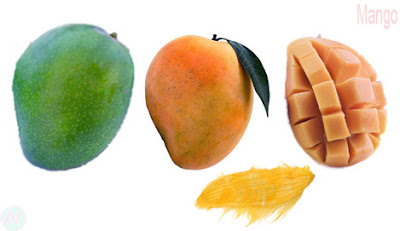




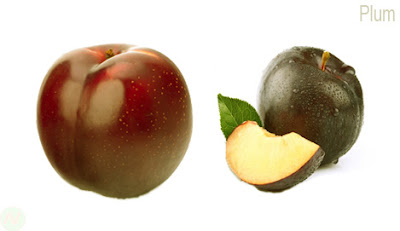

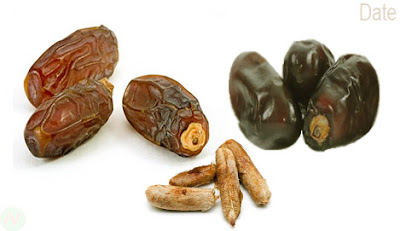



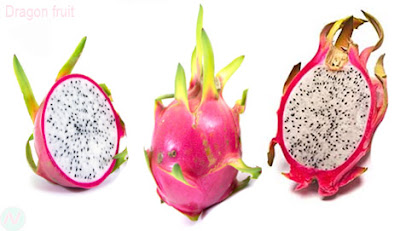



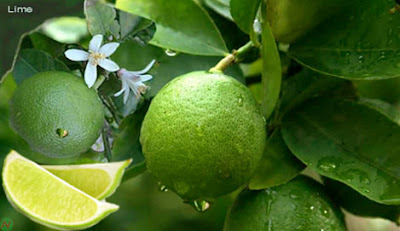
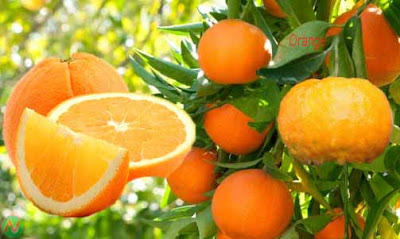
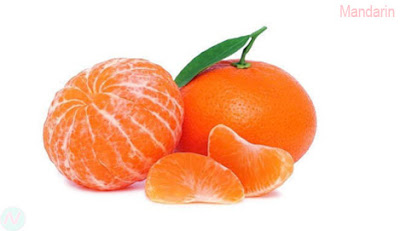

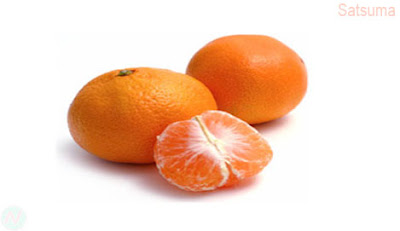
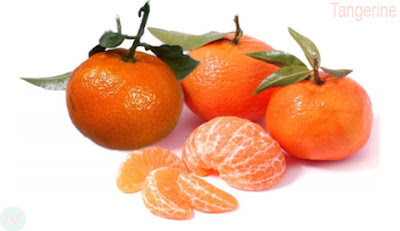
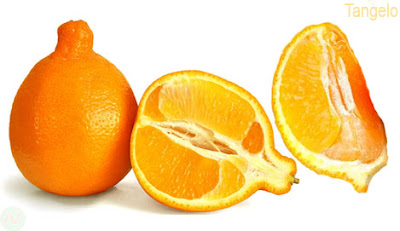

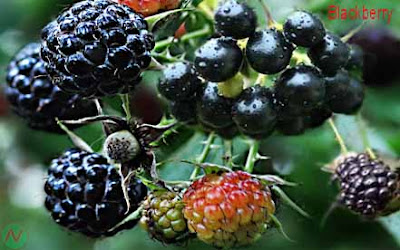





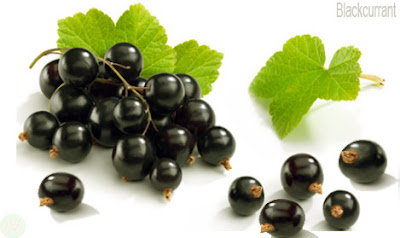



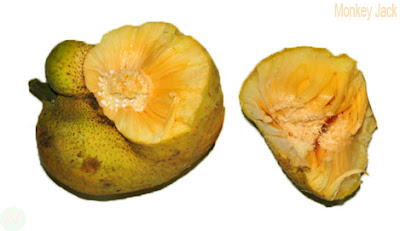
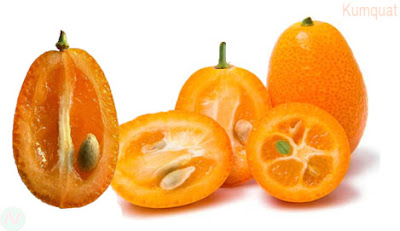
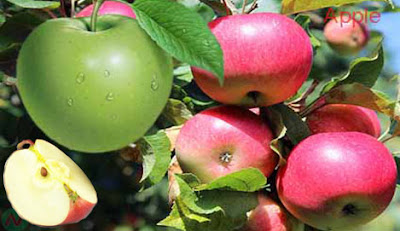

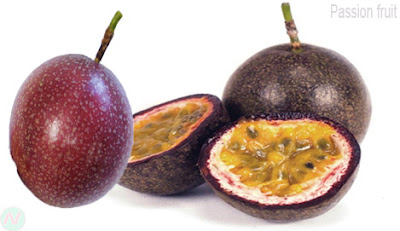
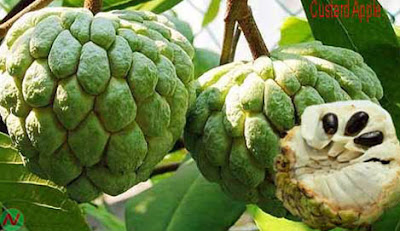














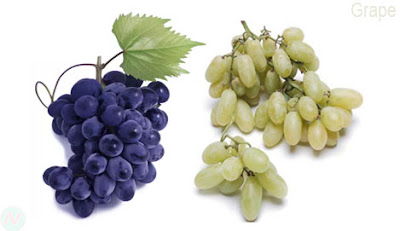








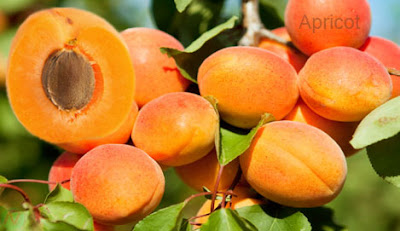
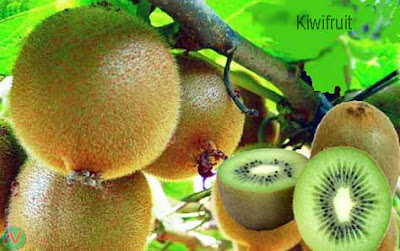
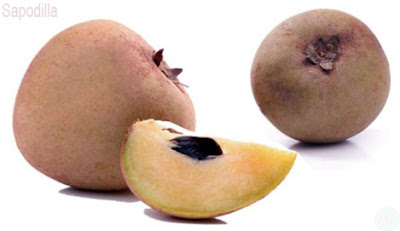


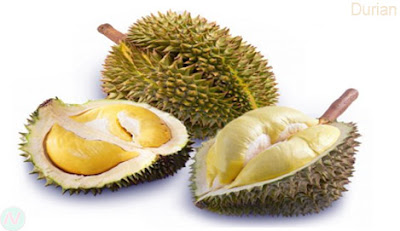
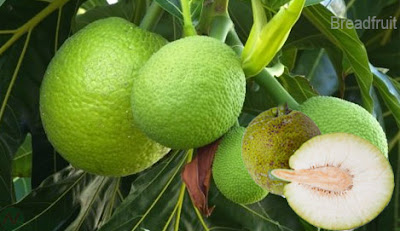
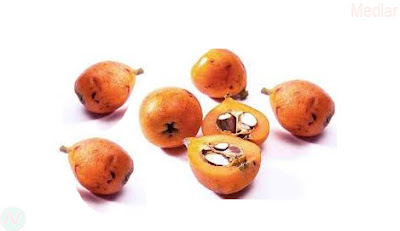

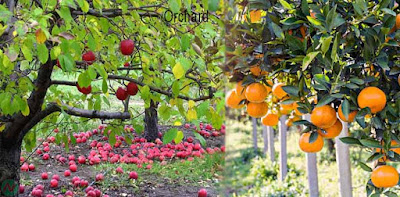












No comments